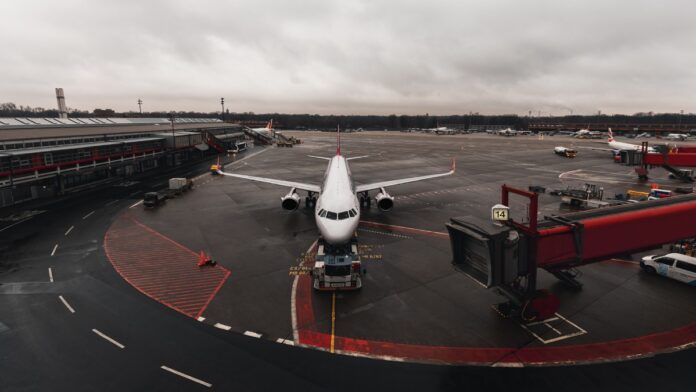Multiple airlines have recently canceled flights into certain US airports due to concerns that the rollout of 5G mobile communication technology will interfere with the equipment on some planes. Following warnings from aviation executives and the Federal Aviation Administration, telecommunications companies AT&T and Verizon delayed activating some 5G towers near US airports. Learn More
Contents
How might 5G interfere with airplanes? Is it possible to resolve the issue?
5G is the fifth generation of mobile phone technology, which is currently being deployed in several countries around the world. It could provide network speeds that are up to 100 times faster than what we’ve seen with 4G. AT&T and Verizon had planned to generate 5G internet using C-band frequencies, which are radio frequencies (or radio waves) that range between 3.7 and 3.98 gigahertz (GHz).
These frequencies are close to the ones used by modern aircraft to determine altitude. A radio altimeter, which is an important piece of aircraft equipment, operates on C-band frequencies ranging from 4.2 to 4.4GHz. Pilots rely on radio altimeters to safely land their planes, especially when visibility is poor, such as when the airport is surrounded by high mountains or when the weather is foggy.
The fear is that radio waves from 5G towers near airports could create interference due to the tiny gap between the frequencies of 5G and radio altimeters. That is, users using 5G on their phones may unknowingly distort or destroy the signal of the radio altimeter. If this occurs, even if only for a few seconds, it could indicate that the pilot did not receive the correct information while landing. The US Federal Aviation Administration expressed alarm as a result of this.
What can be done to resolve this issue?
Other countries that are implementing 5G are using C-band frequencies that overlap with or are close to those of radio altimeters with no known issues. In the United Kingdom, for example, 5G supports frequencies up to 4GHz. The risk is reduced when there are no or few mountains around airports.
Other countries’ 5G networks use a frequency that is slightly higher than that of airplane equipment. In the European Union, for example, 5G supports frequencies up to 3.8GHz. This could be a viable alternative for airports in the United States. In the long run, the ideal solution would be to use a considerably higher band for 5G, such as 24GHz to 47GHz. Data speeds are substantially faster at these frequencies, But the coverage area of each cell is very less so to do this we will need more towers.
There’s also the option of lowering the signal power from airport towers, which has been done in France and Canada. This is not about changing the frequency but about reducing the likelihood of interference with neighboring bands because the signal intensity is measured in decibels, not GHz.
Another possible approach is to change the frequency range of radio altimeters. However, this would take a long time and would most likely be resource-intensive for the aviation sector. While the likelihood of an in-flight issue due to 5G interference may be quite low, we must take any potential dangers very seriously when it comes to human safety. The decision to postpone the deployment of 5G masts near US airports is a good option while relevant authorities determine the safest path forward.
Conclusion
Several flights have been canceled following concerns that the introduction of 5G mobile communications technology is disrupting the equipment of some aircraft. 5G mobile communication technology can cause problems it seems a lot of research and experimentation is still needed before a full rollout of 5G mobile communication technology.
This article is republished from The Conversation under a Creative Commons license. Read the original article. By SUFIAN YOUSEF, THE CONVERSATION
Sources
- Yousef, S. (2022, January 25). Could 5G really ground planes? Why the US has delayed rolling out the mobile internet technology around airports. The Conversation. Retrieved January 27, 2022.
FACT CHECK: We strive for accuracy and fairness. But if you see something that doesn’t look right, please Contact us.
DISCLOSURE: This Article may contain affiliate links and Sponsored ads, to know more please read our Privacy Policy.
Stay Updated: Follow our WhatsApp Channel and Telegram Channel.












